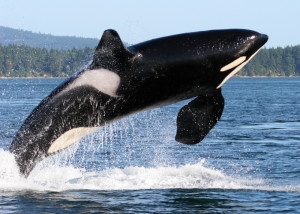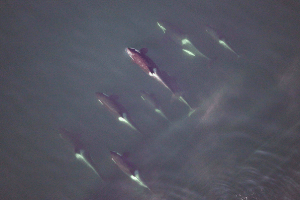We have much more to do and your continued support is needed now more than ever.
A Crucial Few Days to Help Orca and Speak Out Against Dirty Coal
Critically endangered orcas in the Pacific Northwest rely on a diet almost exclusively of salmon that swim into the Puget Sound from fresh waters like the Columbia River. Sadly, the once thriving Pacific salmon that return every year to the rivers and streams of the Northwest have been decimated due to habitat loss.

Orca and the Columbia River
During the spring, summer and fall, the orcas—whose numbers have dwindled to less than 90—are spotted in and near Washington’s Puget Sound and northward along the coast towards Vancouver Island and British Columbia, Canada. During the winter months, researchers have tracked the orcas traveling down the coast and to the mouth of the Columbia River with studies indicating the orcas are feeding primarily on Chinook salmon.
It is known that the famed upper Columbia/Snake River Chinook salmon gather in the salt water at the mouth of the river in the winter and spring. Once plentiful, habitat destruction has taken a toll on this mainstay of the orca diet.
The Devastating Effects of Dirty Coal

By voicing opposition to the terminal and its impacts on sensitive habitat, you can help stop dirty coal in the Pacific Northwest and safeguard orcas, salmon and other wildlife that live in or near the Columbia River Basin.
We only have a few more days to weigh in on behalf of orcas before the November 18 deadline!
![]() Please urge the Army Corps of Engineers to say no to the terminal proposed for the shoreline of the Columbia River in Longview, Washington.
Please urge the Army Corps of Engineers to say no to the terminal proposed for the shoreline of the Columbia River in Longview, Washington.





















